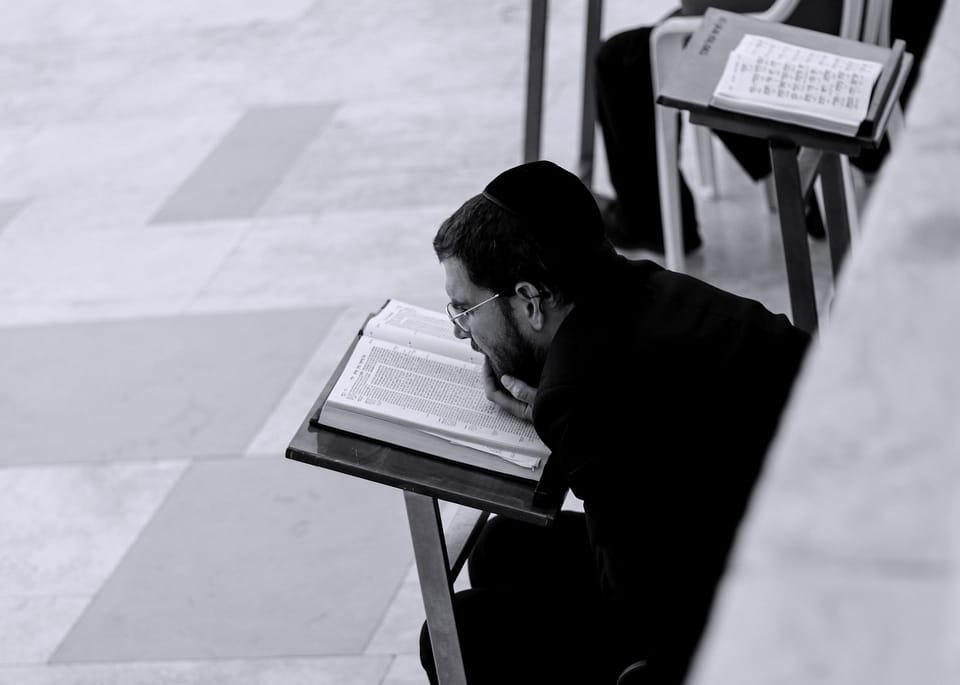Why Is Torah Learning Considered the Top Priority for Jewish People?

Among all the mitzvos and acts of avodas Hashem, Talmud Torah—the learning of Torah—stands alone at the pinnacle. In the Charedi world and throughout our mesorah, Torah learning is seen not merely as another mitzvah, but as the engine that sustains the Jewish People, the world itself, and the connection between Klal Yisrael and HaKadosh Baruch Hu. This is not a modern idea. It is rooted in the Torah, Nevi’im, Kesuvim, Chazal, Rishonim, and Achronim. Let us explore this concept thoroughly and clearly.
1. The Torah’s Own Words
"והגית בו יומם ולילה" — "You shall meditate on it day and night" [1]. The Torah does not merely recommend learning—it commands constant engagement. This pasuk, directed to Yehoshua as he leads the nation, teaches that success and closeness to Hashem depend on Torah learning.
"כי הם חיינו ואורך ימינו ובהם נהגה יומם ולילה" — "For they are our life and the length of our days, and we will meditate upon them day and night" [2]. Torah is described not just as valuable—it is our life.
"עץ חיים היא למחזיקים בה" — "It is a tree of life for those who grasp it" [3]. The Torah is not simply knowledge; it is spiritual nourishment, a lifeline.
2. The Talmud: Talmud Torah K'neged Kulam
The Mishnah in Peah lists mitzvos whose reward is received both in this world and the next, concluding: "ותלמוד תורה כנגד כולם" — "And Torah study is equal to them all" [4].
Why? Because Torah learning empowers all other mitzvos. As the Gemara explains: “Study leads to action” [5].
The Gemara further states: "כל שאינו עוסק בתורה נקרא נזוף" — "Anyone who does not engage in Torah is called 'rebuked'" [6]. And: "כל הלומד תורה ואינו חוזר עליו דומה לאדם שזורע ואינו קוצר" — "One who learns Torah and doesn’t review it is like one who plants but does not harvest" [7].
3. The Rishonim: Torah as the Purpose of Creation
The Rambam rules: "תלמוד תורה גדול מכל המצות" — "The study of Torah is greater than all other mitzvos" [8].
The Ramban writes: "The purpose of the Jewish People is to keep the Torah and to be constantly engaged in it... the Shechinah dwells among them only through the Torah" [9].
4. The Achronim: Torah as the Sustaining Force of the World
The Nefesh HaChaim explains that: "The entire existence of the world, from moment to moment, depends on the breath of Torah learning. If Torah learning were to stop for even a second, the world would revert to chaos" [10].
Similarly, the Chofetz Chaim writes: "If there are no Torah learners, there is no protection for Klal Yisrael. All the zechuyos of chesed and mitzvos depend on the merit of those learning Torah" [11].
Rav Elchanan Wasserman states: "In every generation, Torah scholars are the foundation of the world. When they are lacking, everything collapses" [12].
5. Torah Study Is a Relationship with Hashem
The Vilna Gaon teaches that Torah is not simply a command—it is Hashem’s mind, and when one learns Torah, he is connecting directly to the Divine [13].
Rav Shach said many times: "When you learn a daf of Gemara, you are sitting at the feet of Har Sinai" [14].
This is why Torah learning is not just a mitzvah—it is the core identity of the Jewish soul.
6. The Role of Yeshivos and Kollelim
Based on this foundation, the Charedi world emphasizes the establishment and support of Torah learning institutions—yeshivos, kollelim, and chavrusa learning—because they are the heartbeat of Am Yisrael.
Just as we need physical oxygen, we need spiritual oxygen—and that is what Torah provides.
Conclusion: Torah Is Life Itself
In today’s world, people often wonder: Why don’t Charedim emphasize activism, careers, or national defense as top priorities? The answer is: Torah is the defense. Torah is the oxygen. Torah is the future.
Without Torah, we are not a nation. With it, we are eternal. This is why the Charedi world, faithful to the mesorah from Har Sinai, continues to put Torah learning first—not as a slogan, but as a sacred duty that sustains our people, brings the Shechinah closer, and prepares the world for Geulah.
Sources [1] Yehoshua 1:8 [2] Siddur, Ma’ariv (Evening Prayer) [3] Mishlei 3:18 [4] Mishnah Peah 1:1 [5] Kiddushin 40b [6] Nedarim 81a [7] Sanhedrin 99a [8] Rambam, Hilchos Talmud Torah 1:8 [9] Ramban, Commentary to Vayikra 26:11 [10] Nefesh HaChaim, Shaar 4 [11] Chofetz Chaim, Torat HaBayit [12] Rav Elchanan Wasserman, Kovetz Maamarim [13] Vilna Gaon, Commentary to Mishlei [14] Rav Elazar Menachem Man Shach, Michtavim uMaamarim
